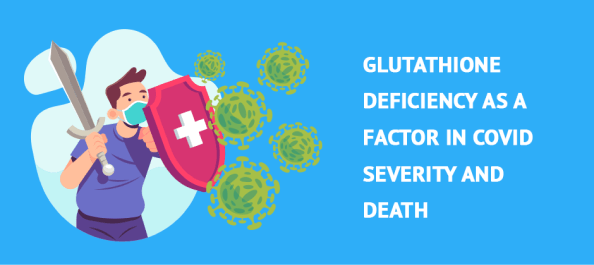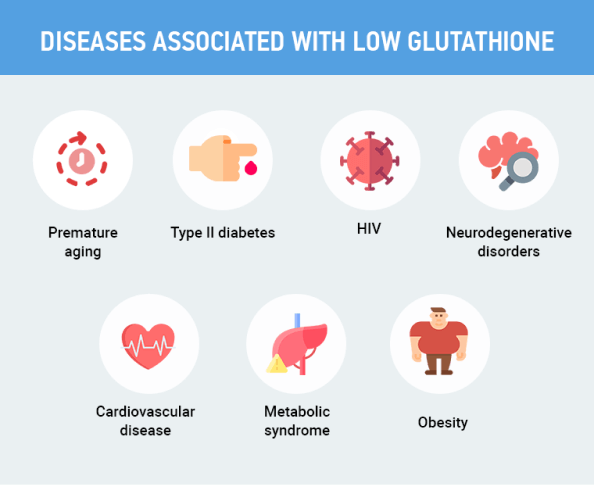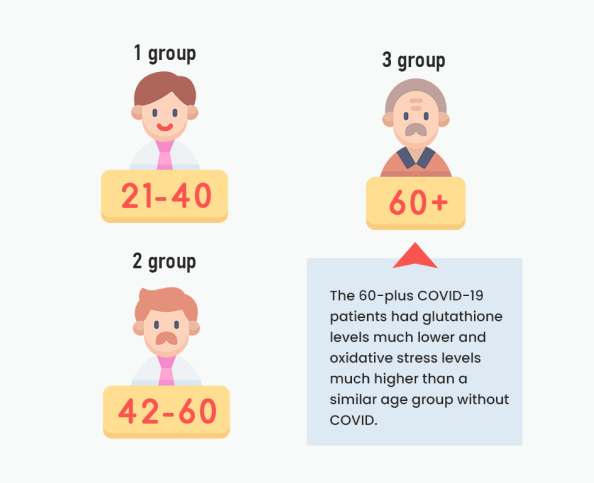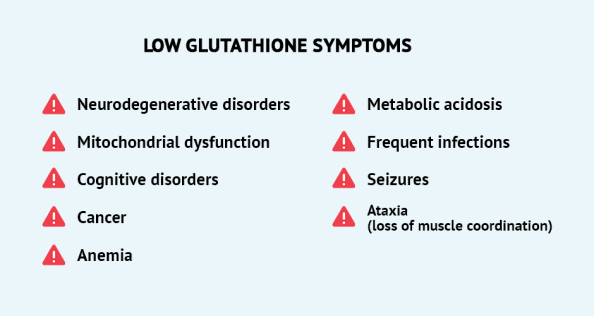
The COVID pandemic hit NYC harder than any other city in the USA, with thousands of hospitalizations and deaths. As the incidence and severity of COVID infection recedes around the globe, scientists are digging through the data to mine valuable information that can help prevent hospitalization and death in the future.
One common thread found in patients who suffered severe COVID symptoms leading to death is glutathione deficiency. Learn about glutathione and coronavirus, and how to boost your own glutathione levels to optimize your health.
Glutathione and Your Immune System
Glutathione is a powerhouse antioxidant tripeptide made up of three amino acids. It is often referred to as the “mother” of all antioxidants because it is the most abundant antioxidant in your body, manufactured within the cells from dietary amino acids. In fact, cellular glutathione levels are considered to be a reliable indicator of a person’s prospective longevity.
One of glutathione’s most important functions is to support your body’s immune system. Glutathione also works to make medications more absorbable. Recent research shows that patients hospitalized with COVID-19 had significantly reduced levels of glutathione, coupled with much higher levels of oxidative stress.
Diseases associated with low glutathione include:
- Premature aging
- Type II diabetes
- HIV
- Neurodegenerative disorders
- Cardiovascular disease
- Metabolic syndrome
- Obesity
- and more

According to the Centers for Disease Control and Prevention (CDC), only 5% of COVID deaths were caused “by” COVID-19 alone. Patients who died “with” COVID had on average four additional conditions or comorbidities per death. These statistics dramatically lower the previously overblown risk of severe infection for healthy individuals.
Medical conditions listed on the CDC website that put patients at higher risk of death from COVID include many of the same conditions associated with glutathione deficiency.
Glutathione and Coronavirus
One thing that helped researchers make the link between low glutathione and severe COVID symptoms is the consistency of findings across age groups. This was surprising, since previous research indicated that concentrations of glutathione naturally decline with age, and deficiency is most often seen in people over age 60.
Yet in a recent study, patient samples were subdivided into three groups:
- age 21-40
- age 42-60
- age 60 and older

The research team discovered that COVID-19 patients in all three groups had much lower glutathione levels and much higher oxidative stress levels than healthy individuals in the same age categories. The 60-plus COVID-19 patients had glutathione levels much lower and oxidative stress levels much higher than a similar age group without COVID.
Low Glutathione Symptoms
Insufficient levels of glutathione have been associated with a number of conditions related to aging, including:
- Neurodegenerative disorders
- Mitochondrial dysfunction
- Cognitive disorders
- Cancer
- Anemia
- Metabolic acidosis
- Frequent infections
- Seizures
- Ataxia (loss of muscle coordination)

In some cases, people with low glutathione have a genetic deficiency in glutathione synthetase, a molecule that helps the body to produce glutathione.
NAC and Glutathione for Covid Prevention
N-acetylcysteine (NAC) is a sulfur-based amino acid that is the precursor to another amino acid, L-cysteine, one of the three amino acids that make up the glutathione tripeptide. As a sulfur source, NAC stimulates the synthesis of glutathione and plays a role in enhancing the immune system.
In addition, NAC helps maintain lung health by breaking down mucus into smaller, less viscous fragments. By decreasing the elasticity and viscosity of nasal mucus, NAC helps to thin mucus secretions so that the upper respiratory system is able to clear mucus. Thick mucus is a primary symptom of COVID that makes breathing difficult, causing many patients to be put on respirators.
N-acetylcysteine has been found to be effective for preventing respiratory viral infections. NAC is widely available, safe, and inexpensive. When combined with glutathione, NAC could be a game-changer for the prevention and treatment of severe COVID infections.
Prevent and Treat COVID with a High-Potency Glutathione IV in NYC
Nutrient deficiency and lack of physical activity make for a double-edged sword that threatens your health and wellbeing. The benefits of NAC and glutathione for COVID prevention are well documented. In addition to optimizing your diet and getting regular exercise, one of the best ways to boost your NAC and glutathione levels is with amino acid IV therapy.
Unfortunately, when administered orally, nutritional supplements lose much of their potency during the digestive process. When infused intravenously, nutrients directly enter your bloodstream and travel to your cells, bypassing your digestive tract to ensure you benefit from their full potency.
Contact InVita Wellness today, and boost your immune system to protect yourself against COVID and other respiratory infections that can destroy your health and threaten your life.
Resources
Kumar, Premranjan, et al. “Severe glutathione deficiency, oxidative stress and oxidant damage in adults hospitalized with COVID-19: Implications for GlyNAC (Glycine and N-Acetylcysteine) supplementation.” Antioxidants 11.1 (2021): 50.
https://www.mdpi.com/1423694
Polonikov, Alexey. “Endogenous deficiency of glutathione as the most likely cause of serious manifestations and death in COVID-19 patients.” ACS infectious diseases 6.7 (2020): 1558-1562.
https://pubs.acs.org/doi/10.1021/acsinfecdis.0c00288
Sekhar, Rajagopal V., et al. “Deficient synthesis of glutathione underlies oxidative stress in aging and can be corrected by dietary cysteine and glycine supplementation–.” The American journal of clinical nutrition 94.3 (2011): 847-853.
https://www.ncbi.nlm.nih.gov/pmc/articles/PMC3155927/